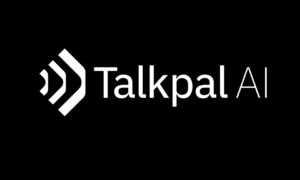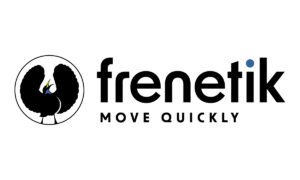EdTech startups are playing an important role in supporting teacher development and training in Maryland. Through on-demand professional development platforms, personalized learning tools, and collaborative peer learning communities, these companies are empowering teachers to enhance their skills and adapt to the demands of the modern classroom. By providing access to data-driven insights and addressing the digital divide, EdTech startups are ensuring that all teachers have the resources they need to succeed. As technology continues to transform education, the partnership between EdTech startups and educators will be essential in shaping the future of teaching and learning. In Maryland, where innovation in education is a priority, the efforts of EdTech companies to support teacher development are helping to create a more dynamic, engaging, and effective educational system for both teachers and students.
Introduction:
The collaboration between EdTech companies and schools is revolutionizing how teachers approach education, making it more dynamic, personalized, and efficient. In this article, we will explore how EdTech startups in Maryland are contributing to teacher development, equipping educators with tools, and fostering professional growth.
The Growing Importance of Teacher Development in a Digital World:
As education continues to embrace digital transformation, the role of the teacher has shifted dramatically. Traditional methods of instruction are no longer sufficient to meet the needs of today’s tech-savvy students. Teachers must now become proficient in using digital tools and platforms to deliver engaging lessons and monitor student progress. This shift creates an urgent need for continuous teacher development and training, particularly in STEM subjects and digital literacy.
Maryland, with its focus on STEM education and technological innovation, is at the forefront of this transformation. Teachers across the state are eager to learn how to integrate technology into their teaching strategies, but they often face challenges such as time constraints, lack of resources, or unfamiliarity with new tools. Fortunately, EdTech startups are stepping in to provide valuable solutions to these challenges.
Providing Access to On-Demand Professional Development:
One of the primary ways EdTech startups in Maryland are supporting teacher development is by offering on-demand professional development opportunities. Traditionally, teachers had to attend workshops or conferences to gain new skills. However, these events can be time-consuming and costly. EdTech companies are addressing this issue by creating online platforms where teachers can access training materials at their convenience.
Platforms such as Coursera, Udemy, and Maryland-based EdTech startups like LearnZillion offer online courses tailored to teachers’ needs. These courses cover a wide range of topics, from how to integrate technology into the classroom to subject-specific content like coding, robotics, or data analysis. Teachers can complete these courses at their own pace, making it easier to fit professional development into their busy schedules.
Moreover, these platforms provide certifications and badges upon course completion, allowing teachers to showcase their newly acquired skills. This not only boosts their confidence but also enhances their career prospects, as schools increasingly look for educators who are proficient in digital tools.
Personalized Learning for Teachers:
Just as personalized learning is beneficial for students, it is equally important for teachers. Every educator has different strengths, weaknesses, and learning styles, and a one-size-fits-all approach to professional development may not be effective. Recognizing this, EdTech startups are leveraging artificial intelligence (AI) and machine learning (ML) to create personalized learning pathways for teachers.
AI-powered platforms analyze teachers’ skill levels and professional goals to recommend tailored training resources. For example, a teacher who is proficient in using basic technology tools but struggles with advanced software may be directed toward courses that focus on higher-level digital skills. Similarly, teachers who want to enhance their expertise in a particular subject area, such as mathematics or science, can access customized learning plans that address their specific needs.
These personalized learning tools help teachers improve their skills more efficiently, allowing them to focus on the areas where they need the most support. By offering individualized learning experiences, EdTech startups are ensuring that teachers receive the training they need to thrive in the modern classroom.
Enhancing Classroom Management and Instructional Techniques:
Classroom management is a critical aspect of teaching, and EdTech startups are helping educators develop more effective strategies in this area. Many EdTech platforms offer tools designed to streamline classroom management and improve instructional techniques. For instance, platforms like ClassDojo and GoGuardian provide teachers with real-time data on student behavior, helping them identify and address issues before they escalate.
Additionally, these platforms offer resources for managing online classrooms, which has become increasingly important with the rise of remote learning. Teachers can track student engagement, monitor participation, and provide immediate feedback, all from a centralized digital dashboard. These tools not only enhance the learning experience for students but also reduce the administrative burden on teachers, allowing them to focus more on instruction.
Furthermore, EdTech startups are offering training on how to incorporate blended learning models into the classroom. Blended learning, which combines traditional instruction with online learning, requires teachers to develop new strategies for delivering content and engaging students. Through targeted professional development, teachers learn how to use digital tools effectively to create a more interactive and flexible learning environment.
Collaboration and Peer Learning:
In addition to providing formal training opportunities, EdTech startups are fostering collaboration among teachers through peer learning platforms. Teachers often learn best from one another, sharing experiences, strategies, and insights that can improve their teaching practices. EdTech companies are capitalizing on this by creating online communities where educators can connect, collaborate, and share resources.
Platforms like Edmodo and Maryland-based startup TeachBoost offer spaces for teachers to communicate with colleagues, exchange lesson plans, and participate in discussions about best practices. These communities provide teachers with a support network where they can seek advice, ask questions, and gain inspiration from fellow educators.
Collaborative learning platforms also encourage teachers to engage in reflective practice. By discussing challenges and successes with peers, teachers can critically evaluate their teaching methods and continuously improve. This ongoing professional dialogue is essential for fostering a culture of lifelong learning among educators.
Empowering Teachers with Data-Driven Insights:
Data-driven decision-making is becoming increasingly important in education, and EdTech startups are equipping teachers with the tools they need to analyze student data effectively. Many EdTech platforms offer dashboards that provide detailed insights into student performance, engagement, and progress. By analyzing this data, teachers can identify trends, assess the effectiveness of their instructional methods, and make informed decisions to improve learning outcomes.
For example, platforms like BrightBytes and DreamBox Learning offer real-time analytics that help teachers track student progress in subjects like math and reading. Teachers can use these insights to adjust their lesson plans, offer targeted support to struggling students, and celebrate the achievements of high-performing students.
Furthermore, data analytics tools also help teachers assess the impact of new teaching strategies or technologies. By comparing student performance before and after implementing a new tool or method, teachers can determine whether the change was effective and make necessary adjustments. This data-driven approach not only enhances student outcomes but also helps teachers refine their own instructional practices.
Addressing the Digital Divide in Teacher Training:
One of the significant challenges in teacher development is ensuring that all educators, regardless of their location or resources, have access to high-quality training. In Maryland, particularly in rural areas, teachers may face barriers to professional development due to limited internet access, lack of funding, or geographical isolation. EdTech startups are working to bridge this gap by offering low-cost, accessible training solutions.
Many EdTech platforms are designed to work on a wide range of devices, from smartphones to laptops, making them accessible even to teachers in low-resource areas. Additionally, several startups offer free or subsidized courses, ensuring that financial constraints do not prevent teachers from accessing professional development opportunities.
By addressing the digital divide, EdTech startups are ensuring that all teachers in Maryland have the opportunity to improve their skills and stay up-to-date with the latest educational technologies. This is particularly important as schools continue to integrate more technology into the classroom, making it essential for all educators to be proficient in digital tools.
Conclusion:
Since the evolution of our educational system, the role of teachers has expanded beyond traditional instruction. With the integration of technology in classrooms, teachers now need to adapt to new tools and methodologies. This shift is especially prominent in Maryland, where educational technology (EdTech) startups are making significant strides in supporting teacher development and training. These startups are not only providing innovative resources to enhance classroom teaching but also empowering educators with the necessary skills to navigate the digital age effectively.



































